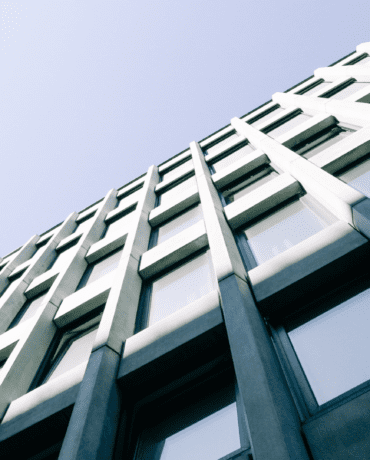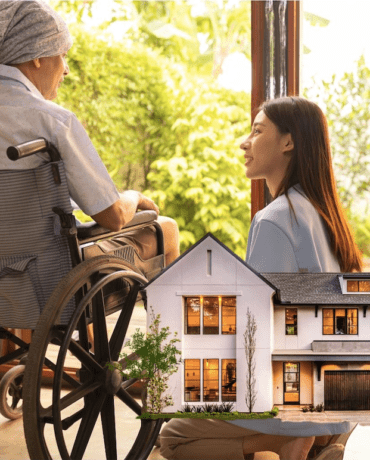The Benefits of Sustainable Insulation for UK Homes, Commercial Properties and New Builds.
In today’s world, where environmental concerns are at the forefront, the importance of sustainable insulation cannot be overstated. As we strive to reduce our carbon footprint and create more energy-efficient buildings, choosing eco-friendly insulation materials has become a crucial aspect of green construction.
Sustainable insulation refers to the use of environmentally friendly and energy-efficient materials in insulating buildings. These materials are designed to minimise heat loss or gain, reducing the need for excessive heating or cooling and ultimately leading to significant energy savings. By opting for sustainable insulation, we can not only reduce our reliance on non-renewable resources but also contribute towards creating healthier indoor environments.
The Environmental Impact of Traditional Insulation Methods
Many traditional insulation materials, such as fibreglass and foam board, are derived from non-renewable resources and require high levels of energy during production. This results in substantial carbon emissions and contributes to climate change. Additionally, the manufacturing processes for these materials often involve the use of harmful chemicals that can further harm the environment.
Furthermore, traditional insulation methods may not be as effective in reducing energy consumption as newer alternatives. Poorly installed or deteriorating insulation can lead to heat loss or gain, requiring more energy for heating or cooling purposes.
Types of Sustainable Insulation for Homes and Commercial Properties
When it comes to insulating homes and commercial properties in the UK, there are various types of sustainable insulation materials available. These materials not only provide effective thermal insulation but also have a minimal impact on the environment. Some of the most common and best sustainable insulation materials are outlined below:
1. Natural Insulation Materials:
Natural insulation materials are one option for sustainable building insulation. These include materials such as sheep’s wool, hemp, and cork.
Sheep’s wool insulation is a widely used natural material known for its excellent thermal properties. It provides effective heat retention in winter and helps to keep buildings cool in summer. Sheep’s wool is also breathable, moisture-resistant, and can absorb harmful indoor air pollutants.
Cotton insulation is another environmentally friendly option that is made from recycled denim or cotton fibres. It offers good thermal performance and sound absorption properties. Cotton insulation is easy to install and does not require any special protective equipment during installation.
Cellulose insulation is derived from recycled paper products such as newspapers and cardboard boxes. It is treated with fire-retardant chemicals to enhance its safety features. Cellulose insulation provides excellent thermal performance, reduces energy consumption, and acts as a sound barrier.
2. Recycled Insulation Products:
Recycled insulation products offer a sustainable and eco-friendly solution for improving energy efficiency in buildings. Two popular types of recycled insulation materials are recycled plastic and recycled denim (jeans) insulation.
Recycled plastic insulation is made from post-consumer plastic waste, such as bottles and containers, that have been processed into a fibrous material. This material is then used to create thermal insulation for walls, roofs, and floors. By using recycled plastic insulation, we not only reduce the amount of plastic waste in landfills but also decrease the demand for new raw materials.
Recycled denim insulation is made from old denim clothing that has been shredded and treated with non-toxic fire retardants. This type of insulation offers excellent thermal performance while providing soundproofing benefits.
3. High-Performance Sustainable Insulators:
High-performance sustainable insulators, such as aerogel insulators and vacuum insulated panels (VIPs), are revolutionising the field of insulation technology. These innovative materials offer superior thermal performance while also being environmentally friendly.
Aerogel insulators, often referred to as “frozen smoke,” are made up of a gel-like substance that is dried to form a solid with extremely low density. This unique structure gives aerogels exceptional thermal insulation properties, making them highly effective at reducing heat transfer. Despite their lightweight nature, aerogel insulators can provide insulation performance several times better than traditional materials like fibreglass or foam.
Vacuum-insulated panels (VIPs) take a different approach to insulation by utilising a panel filled with a core material and sealed within a vacuum. This vacuum eliminates conduction and convection heat transfer, resulting in excellent thermal resistance. VIPs have an incredibly low thermal conductivity value, making them ideal for applications where space is limited but high-performance insulation is required.
The Advantages of Using Sustainable Insulation
One of the main benefits of environmentally sustainable insulation is the potential for significant energy efficiency savings. Designed to effectively trap heat during colder months and prevent heat penetration during warmer months, sustainable insulation can reduce heating and cooling costs, which can have a positive impact on both household and operations budgets, as well as overall energy consumption.
In addition to cost savings, sustainable insulation also improves indoor air quality. Traditional insulation materials may release harmful chemicals or volatile organic compounds (VOCs) into the air, which can be detrimental to human health. On the other hand, sustainable insulation options are typically made from natural or recycled materials that do not emit harmful substances, ensuring a healthier living environment.
Opting for sustainable insulation materials (which often have lower embodied carbon emissions compared to their conventional counterparts) helps reduce the carbon footprint associated with building operations, by reducing carbon emissions buildings can contribute towards mitigating climate change.
Lifespan and durability is another advantage. Many sustainable insulation products are designed to last for decades without losing their effectiveness or requiring frequent replacements. This not only reduces waste but also saves money.
Incentives and Regulations for Installing Sustainable Insulation in the UK
In the UK, there are several incentives and regulations in place to encourage the installation of sustainable insulation in buildings. These measures aim to promote energy efficiency, reduce carbon emissions, and create a more sustainable built environment.
One important aspect is the availability of eco-friendly building certifications. These certifications, such as BREEAM (Building Research Establishment Environmental Assessment Method) and LEED (Leadership in Energy and Environmental Design), provide recognition for buildings that meet certain sustainability criteria. They take into account various factors including energy efficiency, use of recycled materials, and overall environmental impact.
Additionally, the UK government offers grants and funding schemes to support the installation of sustainable insulation. For example, the Green Homes Grant scheme provides financial assistance to homeowners for making energy-efficient improvements to their properties. This includes insulation upgrades that meet specific standards for energy efficiency.
Specific requirements regarding thermal performance and insulation levels, through documents such as Part L of the Building Regulations, outline minimum standards for achieving energy efficiency targets in different types of buildings.
Sustainable Building Practices: Integrating Sustainable Insulation with Other Green Initiatives
By combining various eco-friendly elements such as solar panel installation, rainwater harvesting systems, and passive design principles, we can create buildings that are not only energy-efficient but also environmentally conscious.
The installation of solar panels allows buildings to harness the power of the sun and convert it into clean, renewable energy. This reduces reliance on traditional energy sources and helps to lower carbon emissions. When integrated with sustainable insulation, the overall energy efficiency of a building can be greatly enhanced.
Rainwater harvesting systems are another important aspect of sustainable building practices. By collecting rainwater and using it for non-potable purposes such as irrigation or toilet flushing, buildings can reduce their dependence on municipal water supplies. This not only conserves water resources but also reduces the strain on local infrastructure.
Passive design principles focus on utilising natural elements to regulate temperature and lighting within a building. By incorporating features such as proper insulation, shading devices, and strategic placement of windows, buildings can minimise the need for artificial heating or cooling systems. When combined with sustainable insulation materials that offer excellent thermal performance, the overall energy consumption of a building can be significantly reduced.
Integrating these green initiatives with sustainable insulation is essential for creating buildings that are both environmentally friendly and economically viable in the long run. By considering all these aspects during the design and construction phases, we can contribute towards a more sustainable future in the field of architecture and construction.
Embracing Sustainable Insulation for a Greener Future
In conclusion, embracing sustainable insulation is a crucial step towards striving for more sustainable living. By adopting environmentally friendly construction practices, we not only reap numerous benefits, but we can also contribute to mitigating climate change and preserving our planet’s resources.
Simply put, it is an investment in our present well-being and the future generations’ quality of life.

Talk To An Expert
Contact UsSee More Recent Posts

Navigating the Building Safety Act 2025:...
As commercial properties tend to be more complex in almost every aspect, stricter building...

From Conversation to Action – Achieving...
According to a study conducted by the Fawcett Society in September 2023, ‘only 31%...

Care Home Design and CQC Healthcare...
Enhancing Care Home Environments for Quality Living Care homes play a crucial role in...

